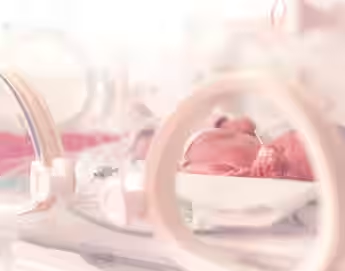Midwife Donna Ockenden examined almost 1,600 cases and found insufficient staff, lack of ongoing training and ineffective investigation and governance at the trust, plus a culture of not listening to families, meant 201 babies could have survived had SaTH provided better care.
There were also 29 cases where babies suffered severe brain injuries and 65 incidents of cerebral palsy. In all the cases identified, plus nine mothers' deaths, the report found better care 'might' or 'would reasonably be expected' to have made a difference.
Ms Ockenden gave examples of ineffective monitoring of foetal growth and a reluctance to perform Caesarean sections as repeated problems that 'resulted in many babies dying during birth or shortly after'. The review also found a culture of not investigating mistakes, with hundreds of instances where the trust failed to appropriately examine deaths or perform serious incident investigations, with mistakes being 'inappropriately downgraded'.
She highlighted 60 specific improvements that must be made by the trust, with 'no excuses' going forward.
It is impossible to comment adequately on the horror experienced by families affected by this catastrophic mismanagement between 2000 and 2019. What I can say is that my experience of maternity negligence is that it is almost always down to poor rates of staffing, insufficient education training and resources.
The SaTH is clearly guilty of engendering a cover up culture and a refusal to recognise catastrophic mistakes early, which could have saved so many lives. But the government too must shoulder much of the blame for years of chronic underfunding of maternity services.
Former health secretary Jeremy Hunt, who ordered the Inquiry in 2017, presided over a department between 2012 and 2018 that enabled the development of a chronic staff shortage of midwives in the NHS. Mr Hunt described the Ockenden findings as exceeding his "darkest fears", adding: "It is unforgivable that so many lives have been destroyed because the same mistakes were repeated ... An obsession with 'normal' birth that puts ideology above safety, and a blame culture that forces staff to close ranks."
Not surprisingly, the Royal College of Midwives found in its 2021 work survey that over half of midwives said they were considering leaving the job, being driven out by understaffing and fears that they could not deliver safe care to women in the current system.
Donna Ockenden makes detailed recommendations about systemic improvements that should be implemented to avoid future tragedies. The question will be whether the NHS funded via the government will be able to implement these changes.
Read more about maternity negligence.
Key Recommendations from the Inquiry
- A culture where mistakes were not investigated and a failure of external scrutiny
- Parents were not listened to when they raised concerns about the care they received
- Where cases were examined, responses were described as lacking "transparency and honesty"
- The trust failed to learn from its mistakes, leading to repeated and almost identical failures
- A culture of bullying, anxiety and fear of speaking out among staff at the trust "that persisted to the current time"
- Caesarean sections were discouraged, often leading to poor outcomes

